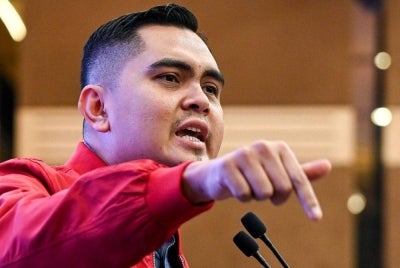Ideas launches blueprint outlining 13 reform priorities

SHAH ALAM - The Institute for Democracy and Economic Affairs (Ideas) has launched a blueprint in an effort to identify reform priorities over the next three years as well as interlinkages between specific reform initiatives.
The blueprint entitled "Reforming Our Institutions: Blueprint for Reforms" was developed through Ideas' engagement with Civil Society Organisations (CSOs) such as Agora Society, Coalition for Clean and Fair Elections (Bersih), Coalition for Business Integrity Berhad (CBI), Projek SAMA, Rasuah Busters, Sinar Project, Transparency International - Malaysia (TI - M), parliamentary expert Maha Balakrishnan, research analyst Wo Chang Xi as well as Members of Parliament (MPs).
Ideas together with its partners highlighted the urgent need for the Madani government to produce a roadmap delineating all the institutional reforms that the government intended to enact with a clear timeline to ensure accountability and assure the public of its commitment.
In a statement, it said it has put together a visualisation of 13 individual reforms, which fall into four clusters.
"Achieving reforms in these 13 areas would strengthen the four pillars, which would in turn achieve the two overarching goals of a 'competitive and fair democracy for all' and 'a clean, transparent and accountable governance system.
"These pillars are Electoral and Political System, Government Oversight and Transparency, Independent and Strong Parliament and Independent and Strong Institutions," it said.
Ideas also stressed the need to streamline reform efforts, foster a collaborative approach within the CSO network to avoid duplication and ensure a more effective push for reform.
Its chief executive officer Dr Tricia Yeoh said one of the challenges the organisation faced in its effort to push for the Political Financing Act is in situating political finance reform in the midst of other much needed reform initiatives.
"Political financing reform cannot be accomplished in isolation, as no reforms work in a vacuum. In fact, many reforms are interconnected, which is precisely why this blueprint is so crucial.
"Many other reform efforts must be undertaken simultaneously if the Political Financing Act is to be meaningful and impactful.
"We highly recommend that the relevant government departments such as the Legal Affairs Department and the Attorney General’s Chambers (AGC) conduct meaningful consultation with civil society and other experts to share their views on the various institutional reforms being planned for," she said.
Yeoh also said she hoped that the Parliamentary Special Select Committee (PSSC) on Human Rights, Election and Institutional Reforms will be closely involved in the process of drafting and amending any laws needed in the reform process.
"The PSSC's involvement is important in ensuring the contents of various versions of the PFA which requires bipartisan support is compared with each other.
"This legislation will fundamentally transform Malaysia’s political system and make it more transparent and accountable.
"We also stand ready to assist the government in effectively implementing these critical institutional reforms," she added.
Download Sinar Daily application.Click Here!















